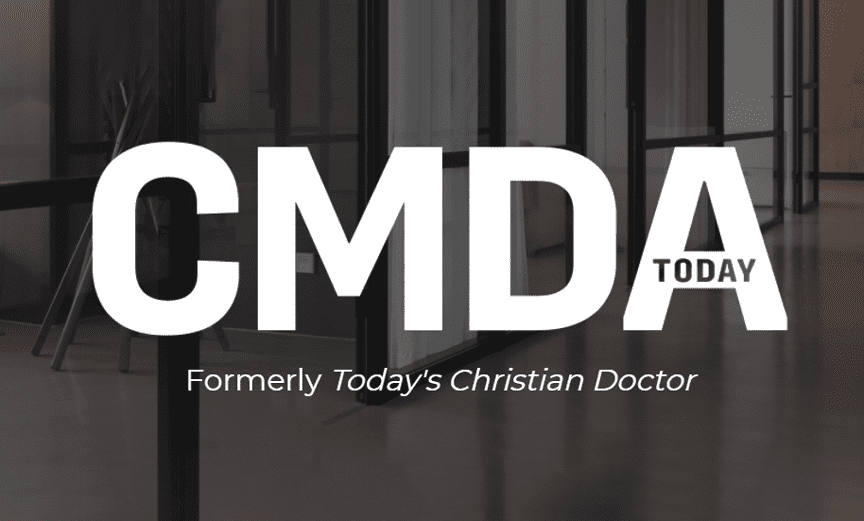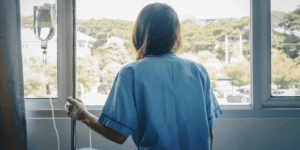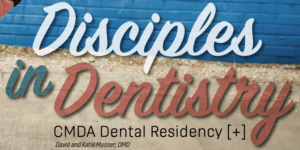
Anxious? Me, Too. How To Lean On God When Feelings Don’t Cooperate
I’ve been a family doctor in the same location for 30 years, so many of my patients have been with me a decade…or two…or three. Following people through their life stages has been a joy. We’ve grown older together. I’ve been acutely aware of this in the last two weeks as I’ve called patients to reschedule them. I’ve wanted to call them myself to make sure they don’t need anything, because I’d rather they avoid any medical facility for the next six months.
Amy Givler, MD, FAAFP
I’ve been a family doctor in the same location for 30 years, so many of my patients have been with me a decade…or two…or three. Following people through their life stages has been a joy. We’ve grown older together. I’ve been acutely aware of this in the last two weeks as I’ve called patients to reschedule them. I’ve wanted to call them myself to make sure they don’t need anything, because I’d rather they avoid any medical facility for the next six months.
Most of my patients are over the age of 60, and many are over 80. As I call, I picture each one and can’t keep my mind from wondering how COVID-19 would affect that patient. They all have co-morbid conditions (why would they see me otherwise?), and many already have compromised lung function. Could they tolerate even a “mild” case? I doubt it.
And then, before I can stop myself, I find myself thinking, “Will I ever see this person again?” I love being a doctor. I love these patients. I don’t want to lose them.
I think about my patients, and my elderly father, and all my precious older friends, and then my mind multiplies those folks by a million—will the world lose a vibrant older generation in one fell swoop? The thought terrifies me.
If you spoke with me today, I doubt you would think I’m anxious unless I told you. I hide it pretty well. Yet I’m startling at loud or unexpected noises. I have a slight tremor. It feels like something is caught in my throat. I’ve lost nine pounds in two weeks—I’m just not hungry. And every morning I have been waking up with a start, as if I had just heard an intruder. And all through the day those feelings persist.
I’m experiencing, in other words, all the symptoms of anxiety my patients have described for years. I guarantee you, I will be more empathetic in the future.
Our hospital here in north Louisiana still has only moderately-ill suspected COVID-19 patients (on March 26), with nobody critically ill…yet. We’re actively discouraging patients from coming for any reason, so the hallways are eerily quiet. It reminds me of the videos I’ve seen of the water along the shoreline receding just before a tsunami hits. Especially depressing are the ones with curious people walking farther toward the ocean’s edge. I want to yell, “Run away! Now! Disaster is coming.”
But, of course, for those of us practicing medicine with a heart toward suffering people, running away is not an option. Even those of us not on the “frontline” can help those of us who are by educating our patients, and the public, about the virus and how to avoid it. I’ve been actively making myself available by phone and text to friends and family, far and near. And many people will need support and advice in the coming weeks if they are sick and at home with mild symptoms.
But before we can give something useful to others, we have to have something to give. I’m speaking to myself here, because there’s one more symptom of my anxiety I haven’t mentioned yet—racing thoughts. Left unchecked, my racing thoughts can render me ineffective because I won’t be able to think clearly, speak rationally or act helpfully.
This symptom is unlike the others, though, because I can do something about it. When I tell my pounding heart to slow down, nothing happens. My sheer willpower cannot change the situation. But I can turn my thoughts toward God, and I can remind myself of His power and His promises.
What I think about is a choice within my control. I can remind my soul of what is true, as David did in Psalm 42:11: “Why are you cast down, O my soul, and why are you in turmoil within me? Hope in God; for I shall again praise him, my salvation and my God” (ESV).
The Bible has a lot to say about worry and fear in times of trouble. Psalm 46:1-2 encourages us to look to God for help: “God is our refuge and strength, a very present help in trouble. Therefore we will not fear though the earth gives way…” (ESV).
The only way I can be fearless in a fearful situation is if I remind myself that God is in control, that He is with me, and that He loves me and has my best interests at heart. Thus, I get my focus off my circumstances and onto God. “You keep him in perfect peace whose mind is stayed on you, because he trusts in you. Trust in the Lord forever, for the Lord God is an everlasting rock” (Isaiah 26:3-4, ESV).
This is something I have to remind myself daily, hourly, minute-ly. I’m remembering back to another time in my life when I struggled with anxiety. I was pregnant with our third child and getting chemotherapy for Hodgkin’s lymphoma. I was constantly thinking about our baby being exposed to toxic chemicals. How could he not be killed by them? Only when I felt him kick was I reassured. But then five minutes would pass and anxious thoughts would crowd in again.
That’s when I turned again and again and again to Jesus. “I choose to trust you, Lord. I know you care about my baby and me. I know you love me.” That’s when I memorized Philippians 4:6-7, “Do not be anxious about anything, but in everything by prayer and supplication with thanksgiving let your requests be made known to God. And the peace of God, which surpasses all understanding, will guard your hearts and your minds in Christ Jesus” (ESV). (And just to not leave you hanging, that baby was born healthy and is now a third year medical student.)
That verse in Philippians gives me the pattern of the path to peace. First, I choose to not dwell on the fearful things. 2 Corinthians 10:5 puts it another way, urging us to “take every thought captive” (ESV). And then I use the tools: Prayer, then supplication with thanksgiving and then making my requests to God.
In the days I’ve been reflecting on this, my anxious feelings have diminished somewhat. But I still woke up this morning with that hyper-alert feeling, my throat still feels tight and my heart is still beating faster than normal. Yet it’s becoming more of a habit to turn to God and give Him my future.
This is not pretending that terrible things aren’t happening. No, because they are. But this is facing the future knowing that God already knows what it will hold, that His loving arms are surrounding me and that He will sustain me. In this way may I, and may you, be better equipped and ready for what lies ahead.
About the Author
Amy Givler, MD, FAAFP, is a family physician in Monroe, Louisiana. She and her husband Don met in 1980 at a CMDA student event her first year of medical school, and they have both been active members of CMDA ever since. She works in two outpatient clinics and travels to Kenya yearly to teach LSU-Shreveport medical students and residents for their global health rotation. She is a regular writer for CMDA’s “The Point” blog, and she has also written a book for people newly diagnosed with cancer, Hope in the Face of Cancer: A Survival Guide for the Journey You Did Not Choose.











